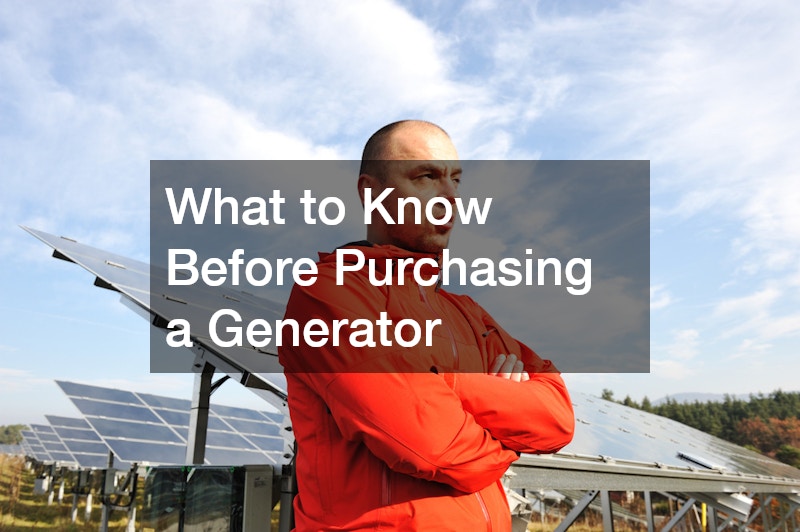Purchasing a generator is a significant investment that can provide peace of mind during power outages and emergencies. However, before making this important decision, there are several key factors to consider to ensure that you choose the right generator for your needs. Understanding the considerations before installing a generator can help you make an informed decision and avoid potential pitfalls.
Determine Your Power Needs
One of the first considerations before installing a generator is determining your power requirements. Different generators provide varying levels of power output, so it’s crucial to assess how much electricity you’ll need during an outage.
Start by listing the essential appliances and systems you want to keep running, such as refrigerators, HVAC systems, lights, and medical equipment. Calculate the total wattage required to power these items, and choose a generator that can handle this load. Overloading a generator can lead to damage, so it’s better to opt for a model that offers a bit more capacity than you think you’ll need.
Consider Fuel Type
Generators run on different types of fuel, including gasoline, diesel, propane, and natural gas. Each fuel type has its pros and cons, so it’s essential to consider which option best suits your needs and circumstances. Gasoline and diesel generators are widely available and can provide portable power, but they require regular refueling and proper storage of fuel. Propane and natural gas generators offer more extended run times and are often more environmentally friendly, but they may require professional installation and connection to a fuel source. Consider the availability of fuel in your area and your preferences for maintenance and storage when making your decision.
Choose Between Portable and Standby Generators
Another critical consideration before installing a generator is deciding between a portable or standby unit. Portable generators are typically less expensive and can be moved as needed, making them a good option for smaller homes or temporary use. However, they require manual setup and refueling. Standby generators, on the other hand, are permanently installed and automatically kick in during a power outage. They are more expensive but offer convenience and reliability for larger homes or businesses. Consider your budget, space, and how frequently you expect to use the generator when choosing between the two types.
Installation and Maintenance
Installing a generator, particularly a standby model, often requires professional installation to ensure proper setup and safety. Before purchasing, consider the costs associated with installation, such as permits, wiring, and connection to your home’s electrical system. Additionally, generators require regular maintenance to function effectively. This includes oil changes, filter replacements, and periodic testing. Be sure to factor in ongoing maintenance costs and responsibilities when deciding on a generator.
.


